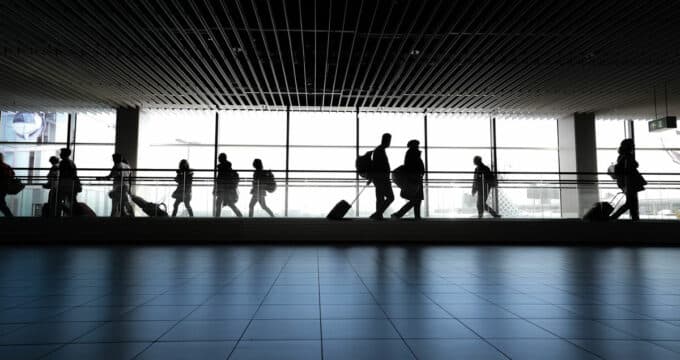US government moving ahead with H-1B reforms while applying greater scrutiny to applicants
The H-1B visa programme has always been an important pathway for foreign graduates of US institutions wanting to stay and work in the United States after their studies. The H-1B is initially granted for a period of three years, and it can be renewed for a second three-year term for a maximum work period of six years following graduation.
H-1Bs are awarded via a lottery system which, owing to a policy change that came into effect on 1 April 2019, now favours foreign graduates with advanced degrees from US institutions. The important thing to note alongside this rule change is that the number of applicants (or “petitions”) for an H-1B vastly outstrips the supply. The US government issues 85,000 H-1B visas per year, and, in 2018 alone, it received just over 396,000 completed applications.
Under the new rules, international students with advanced degrees from US higher education institutions are able to apply for one of 65,000 available H1-B visas as a first step in a two-fold lottery system, and then again – if they aren’t successful the first time – for the remaining 20,000 of the total allotment of 85,000. Previously, they would have only been considered once in the annual lottery. The effect of the new rule therefore is to benefit foreign students with master’s degrees (or more advanced qualifications) but to also diminish the chances of others (i.e., those with bachelor’s degrees or non-degree qualifications).
“Request for Evidence”
The volume of applications for H-1Bs has been relatively stable over the past four years, with roughly 400,000 completed petitions annually. One important difference regarding this period, however, is the growing number of applications that have triggered a “Request for Evidence” (RFE) from US Citizenship and Immigration Services (USCIS).
A recent brief from USCIS explains, “If all required initial evidence is not submitted with the [H-1B petition] or does not demonstrate eligibility, USCIS in its discretion may deny the [application] for lack of initial evidence or for ineligibility or request that the missing initial evidence be submitted within a specified period of time.”
As the following sample of an actual Request for Evidence illustrates, applicants are asked to respond in considerable detail to demonstrate their eligibility for an H-1B, including with detailed job descriptions, organisational charts, and formal statements from their prospective employers.
A sample Request for Evidence as originally published by Crunchbase.
Through 2017, roughly 20% of H-1B applicants received a Request for Evidence from USCIS. Last year, however, that number doubled. Of the nearly 400,000 applications filed in 2018, just over 150,000, or about 40%, triggered an RFE. Based on USCIS reporting for the first three quarters of this year, a similar percentage of applicants will receive a Request for Evidence in 2019.
The other notable development over the last two years is that a greater percentage of petitions with an RFE are being rejected by USCIS. In 2015 and 2016, the percentage of approved petitions with an RFE was roughly 80%. That proportion fell to 74% in 2017 and then again to 62% last year. Based on year-to-date reporting by USCIS, that proportion is holding somewhere around 62% again this year. In other words, four in ten applicants who receive an RFE are being rejected at that stage before the lottery process begins.
Reports trace the greater scrutiny of H-1B applications to an Executive Order issued by President Donald Trump on 18 April 2017. The “Buy American and Hire American” order explicitly calls for reforms to ensure that H-1B visas “are awarded to the most-skilled or highest-paid petition beneficiaries.”
The executive order has already had far-reaching effects, including, as detailed in an April 2019 report in the National Law Review, the following:
- “The rescission of guidance regarding deference to prior determinations of eligibility;
- A revised definition of what constitutes ‘specialty occupation’ for H-1B purposes;
- New guidance on "bona fide employer-employee relationship" especially with regard to STEM OPT; and
- New definition of unlawful presence for students.”
For additional background, please see:














